
MBTAAnalysis: A look inside the MBTA
0 Comments
/
The MBTA shuttles over a million passengers a day around Greater…
 https://pioneerinstitute.org/wp-content/uploads/CloseupClock-1.jpg
739
1244
Mary Connaughton
https://pioneerinstitute.org/wp-content/uploads/logo_440x96.png
Mary Connaughton2017-02-20 12:34:192017-02-21 09:47:58The Clock is Ticking…….
https://pioneerinstitute.org/wp-content/uploads/CloseupClock-1.jpg
739
1244
Mary Connaughton
https://pioneerinstitute.org/wp-content/uploads/logo_440x96.png
Mary Connaughton2017-02-20 12:34:192017-02-21 09:47:58The Clock is Ticking…….
A wealth tax, a SCOTUS case, and a likely Mass. exodus
Op-ed in The Boston Globe: A case New Hampshire filed with the US Supreme Court last October against the Commonwealth of Massachusetts could have a huge impact on state finances nationwide. It also raises the stakes as the Massachusetts Legislature considers amending the state constitution to eliminate the state’s prohibition against a graduated income tax and to hike taxes on high earners.
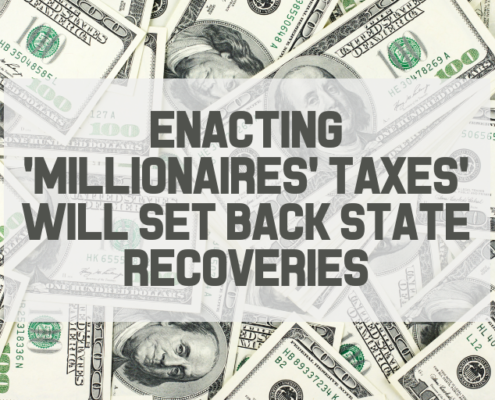
Enacting ‘Millionaires’ Taxes’ Will Set Back State Recoveries
Even as countless citizens and businesses are struggling, many state governments are faced with large deficits that hinder their ability to help. As a result, some, such as Massachusetts, are considering raising taxes on high-earners to generate revenue. But in its report, “Connecticut’s Dangerous Game: How the Nation’s Wealthiest State Scared Off Businesses and Worsened Its Financial Crisis,” the Boston-based Pioneer Institute provides a cautionary tale about the dangers of going down the path taken by the Bay State’s neighbor, Connecticut.
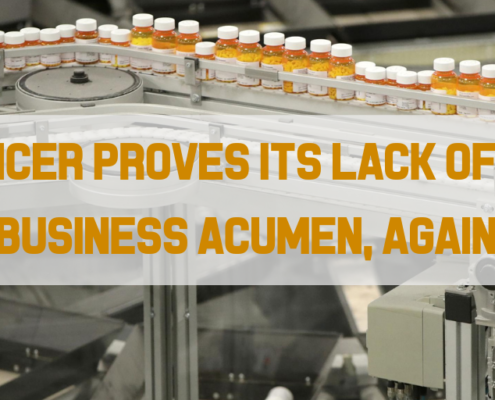
ICER Proves Its Lack of Business Acumen, Again
A recent Institute for Clinical and Economic Review (ICER) “Report on Unsupported Price Increases,” concluded that: “Among the top drugs with price increases in 2019…ICER determined that seven of 10 lacked adequate new evidence to demonstrate a substantial clinical benefit that was not yet previously known.” The impression left by the report is that drug companies arbitrarily raise prices without good reason. As with so many ICER products, the study is misleading and demonstrates a profound lack of business acumen.
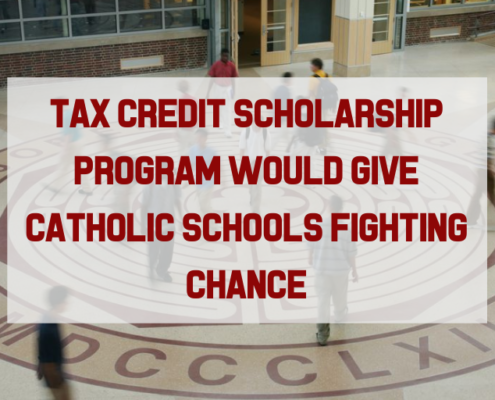
Tax credit scholarship program would give Catholic schools fighting chance
I am among the countless individuals whose lives have been shaped by Catholic education; in my case, it was attending high school at Austin Prep. Despite a stellar record, Catholic schools are facing a grim financial picture. But a recent U.S. Supreme Court decision gives new hope to the schools and to the many Massachusetts families with children who would benefit from attending them.
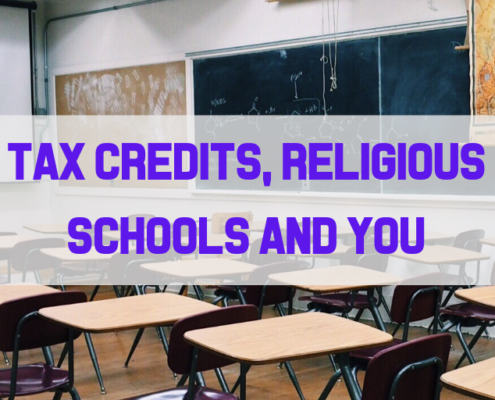
Tax Credits, Religious Schools And You
Six years ago, I met with Erica Smith of the Institute for Justice in a Montana coffee shop, where I agreed to be the lead plaintiff in a lawsuit about the use of funds from a state education tax credit program for children attending religious schools. This past June, in Espinoza v. Montana Department of Revenue, the U.S. Supreme Court reversed Montana’s highest court and ruled that if parents use funds from the program to access private education, religious school options cannot be excluded.
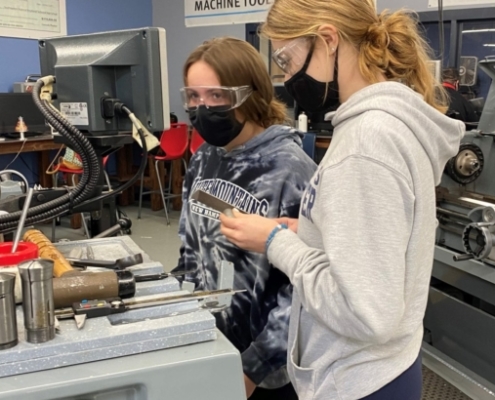
Voc-tech schools thriving despite pandemic strictures
HANDS-ON EDUCATION plays a critical role at Massachusetts regional vocational-technical high schools, where students alternate weekly between academics and shop classes. Given that reality, you’d think the schools would be particularly hard hit by the switch to hybrid models under which students are in a physical school building only half the time. But thanks to innovative approaches to coping with pandemic-related restrictions, voc-techs are successfully bucking statewide public-school enrollment trends.

Education tax credits don’t cost taxpayers a cent
This op-ed has appeared in WGBH News, The Providence Journal,…
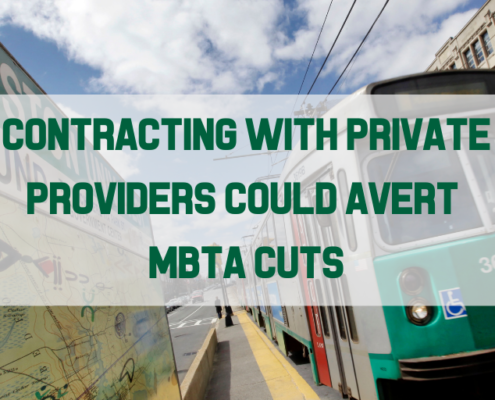
Contracting with private providers could avert MBTA cuts
In response to a collapse in MBTA service in the winter of 2015, the newly formed Fiscal and Management Control Board (FMCB) set the authority on a course of bold reforms. The COVID-19 pandemic is once again presenting new and significant challenges to T leadership that require a rethinking of how service is delivered to stave off painful service cuts.

Targeted government help for small business is needed
Covid-19 will frame economic policy discussions for years to come, just as the Great Recession did a decade ago. The economic impact of the pandemic includes widespread job losses, and millions of Americans are at risk of falling into poverty. Covid-19 is also accelerating pre-existing market trends – such as automation and online shopping – and their potentially devastating impact on the thousands of small businesses vulnerable to these market shifts. Will these businesses be able to adapt?
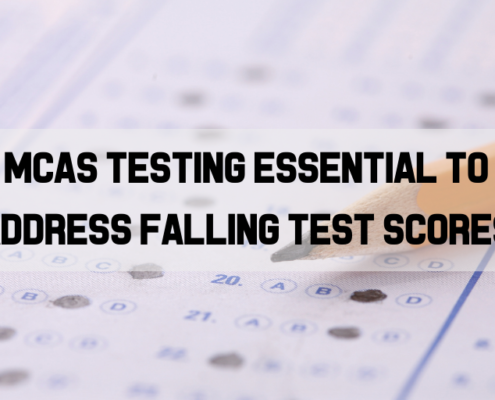
MCAS testing essential to address falling test scores
Amid the chaos that was created by schools suddenly being shuttered in March as a result of the COVID-19 pandemic, it made sense to cancel administration of Massachusetts Comprehensive Assessment System (MCAS) tests. But supporters of pending legislation that would place a four-year moratorium on using MCAS as a high school graduation requirement and create a commission to study alternatives to the tests are no longer responding to a crisis; they are using it to advance their anti-reform agenda.

During construction, the Allston Mass. Pike project must address commuters’ needs
As part of the state’s $1 billion reconfiguration of the Massachusetts Turnpike in Allston, Transportation Secretary Stephanie Pollack recently announced that a narrow strip of land known as “the throat,” will be considered for an at-grade option in addition to a proposal to rebuild the highway viaduct by Boston University.
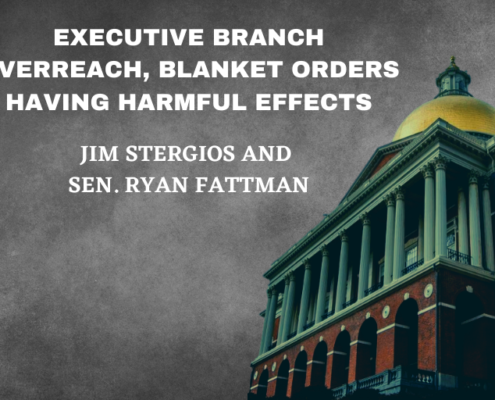
Executive branch overreach, blanket orders having harmful effects
At the outset of the pandemic, limited knowledge and the need to mitigate risk understandably led to political overreach. At this point in the disaster response, though, we are far better at distinguishing fact from fiction and policies that have worked from those that have not.

When ignorance and violence are permitted to trump justice
This week marks the 65th anniversary of the murder of Emmett Till, a 14-year old black boy from Chicago who was killed by two white Mississippians for whistling in the presence of a white woman.

Should the federal government provide free, universal child care?
Free, universal child care provided by the federal government would be contrary to the spirit of the Founders’ view of K-12 education as the constitutional domain of state and local governments.

Education tax credit programs extend choice to families who can’t afford private schools or to move to a tony community
Thanks to the Supreme Court’s Espinoza ruling, many more students can reap the benefits of school choice
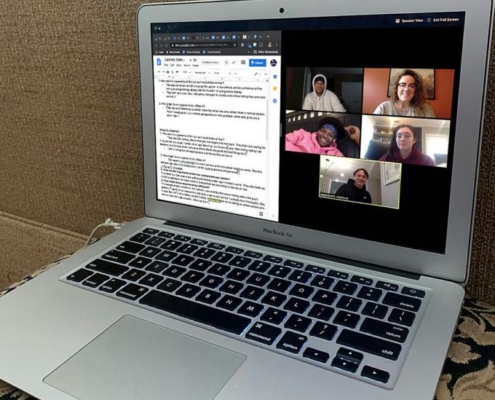
The Virtual Lessons Catholic Schools Can Teach
This op-ed originally appeared in The Boston Pilot.
By Tom…

Sensible police reform includes changing ‘qualified immunity’ laws
Even in a time of painful divisions in our country, there is little doubt among people of good faith that what Derek Chauvin and three other former Minneapolis police officers did to George Floyd was criminal. If they are indeed convicted of a felony, how is it that the former officers could very well be immune from civil liability?
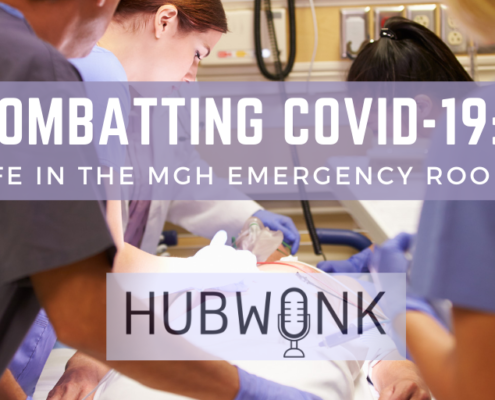
Combatting COVID-19: Life in the MGH Emergency Room
Join host Joe Selvaggi and Pioneer Senior Fellow Josh Archambault as they talk with Dr. David King about the experience of being in emergent care during a pandemic and lockdown. They explore the challenges of coping with a poorly understood virus during a lockdown, all while continuing to serve the sick.

Easthampton High Scores A National Educational Victory During The COVID-19 Pandemic
This spring, Massachusetts’ Easthampton High School was crowned national champion in the “We the People: The Citizen and the Constitution” contest. The competition brings together about 1,200 students from across the country to answer civics questions based on America’s Founding Documents including the U.S. Constitution; The Federalist Papers; and U.S. Supreme Court decisions.

Mass. schools must recommit to knowledge-based curriculum
The Bay State’s leadership role has continued into the current century. Massachusetts made tremendous strides in the years following passage of a landmark 1993 education reform law. But it has been backsliding since 2010, when it adopted weaker English and math standards known as Common Core. To get back on track, Massachusetts must reform its school- and district-level curriculum to emphasize imparting a shared body of background knowledge and social commitment to students in all ZIP codes.

In The Era Of COVID-19, Mass. Needs To Get Long-Term Care Right
This op-ed originally appeared in WGBH News.
In much of the…

Students still need to learn during the coronavirus pandemic
This op-ed appeared in The Boston Globe on March 31, 2020.
State…
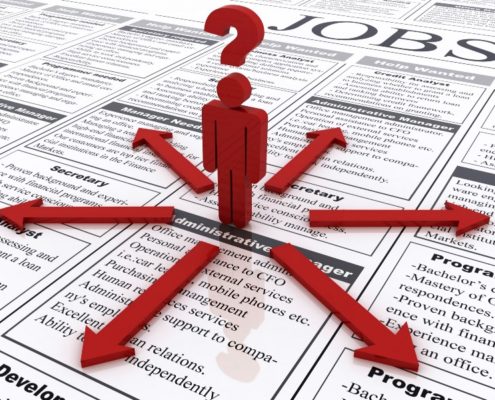
Congress should fix aid, provide block grants
This op-ed by Greg Sullivan and Charlie Chieppo appeared in the…
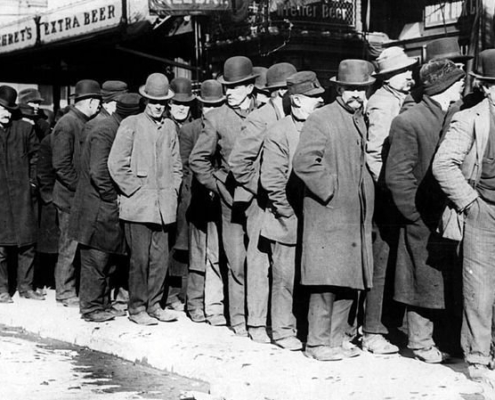
Why Are We So Scared And Impatient?
This op-ed by Barbara Anthony appeared in WGBH News on March…

Baker needs to expand telehealth further
This op-ed appeared in Commonwealth magazine on March 25th, 2020.
Coronavirus…
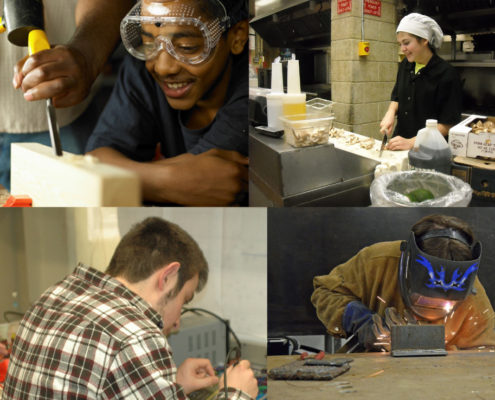
Don’t mess with success of voc-tech high schools
For more than 25 years, Massachusetts vocational-technical high schools have done everything state officials have asked of them. Instead of moving the goal posts by compelling them to switch to a lottery system, we should expand the schools.
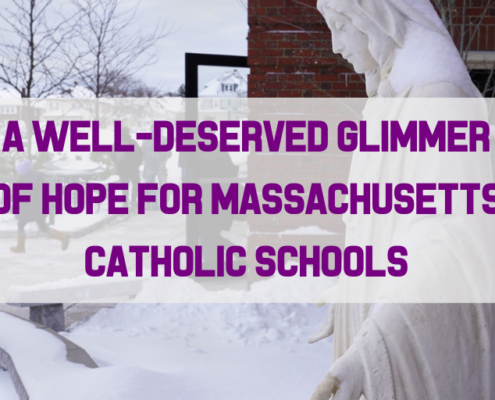
A Well-Deserved Glimmer of Hope for Massachusetts Catholic Schools
Enrollment in Archdiocese of Boston schools has increased by about 4,000 students during the COVID-19 pandemic. Combine that with a 2020 U.S. Supreme Court case that makes it easier to support the schools and it adds up to a well-deserved glimmer of hope for Catholic schools that have fallen on hard times despite their outstanding performance.

Employers should offer commuter benefits to employees
There is no single solution to solve our traffic congestion crisis, but offering employees commuter benefits programs, which bring economic and environmental benefits, among others, can help.

Dynamic pricing for the Expressway
By Jim Stergios & Conrad Crawford
Published in The Boston…

When The Commonwealth Pays The Education Bill, It Should Get A School Committee Say
Local education officials were up in arms earlier this year when Pioneer Institute proposed giving the Commonwealth the power to appoint some school committee seats in urban districts that are mostly state-funded. It would be hard to imagine a better example of why we need to adopt that reform than the current mess in Fall River.
